
Erika and I in Carlow in 1938

My mother, Uncle Anton and Aunt Hella in Karlsbad in 1939
GEBESEE

The main building of my boarding school

Left to right: The headmaster, Dr Max Prüss, Frau Kieschke and Herr Kieschle

Döllnitz in 1939

Frau Goedecke, Adolf, Georg and Hertha
HAUBINDA

Music with Madonna and Child and “Hitler”!
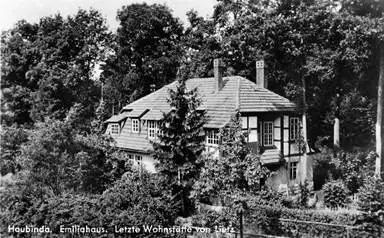
One of our lovely family houses
HOMELAND FLAK
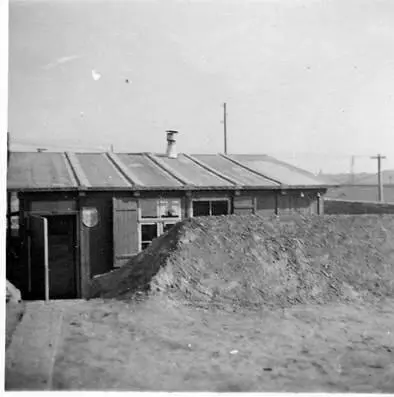
My accommodation hut
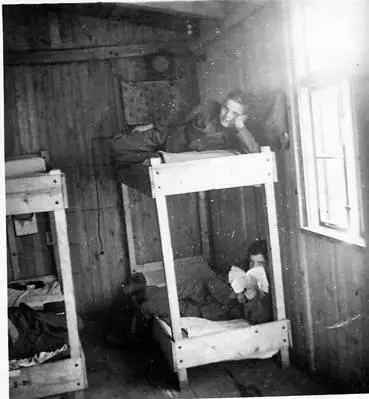
Our bunk beds
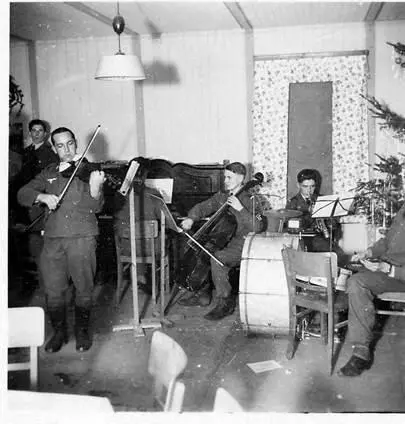
Our jazz group, Gefreiter Rother is on the left
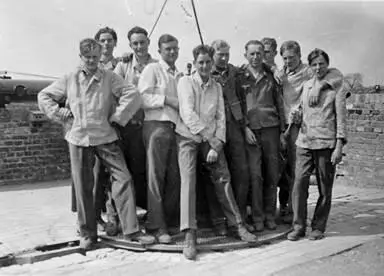
Soldiers and auxiliaries at the control module
MY FRIENDS IN MUSIC
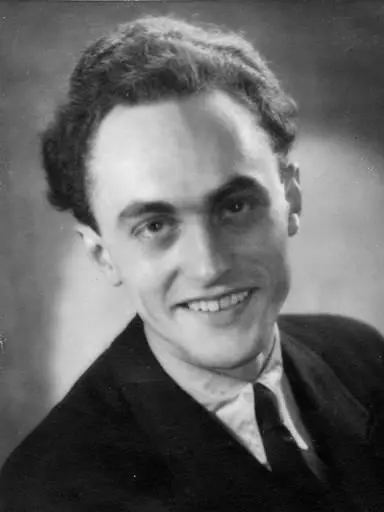
Heinz Rücker
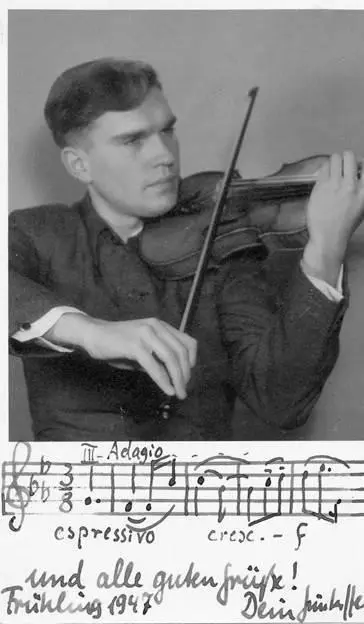
Günther Heinelt
My first sentry-duty on being posted for active service on the Russian Front was a two-hour stint on 27 July 1944 from midnight until two o’clock in the morning. Alone, in the stillness of the night, I felt a strong sense of unreality, while being conscious of the deadly earnestness of my situation.
My mind went back to my early years in England, Czechoslovakia and Ireland and to the carefree days in boarding-school in Germany. I thought of the good times that I had enjoyed and of how remote they now seemed. And how remote, too, was the chance of seeing my parents and my sister again. My thoughts moved on to the years when life became more hazardous and I served in the Homeland FLAK, the Labour Service and as a member of the occupation forces in Holland.
So, as I paced my beat in the darkness, with slivers of moonshine casting strange shadows before my feet, the past seemed no longer to be of any consequence and I felt that I had arrived at the watershed of my life. From now on, everything that happened was going to be of vital importance; my life was going to be in constant danger and in twenty-four hours I could be dead.
Although I had been born in Czechoslovakia to parents of Austrian descent, my early childhood was mainly spent in an English-speaking environment and my first language was English. My father, who came from several generations of professional engineers, was a chemical engineer with Die Erste Brünner, a Czech company that manufactured and installed heavy industrial equipment.
In late 1926, when I was only a few months old, my father was sent with a team of engineers and technical back-up staff to Shropshire in England to build and operate a sugar factory for “English Sugar”. My mother followed soon afterwards with me and my sister, Erika, who was almost four years old. We quickly settled down in the rural hamlet of Alscott, near Wellington, where we spent six very happy years.
My father was intensely dedicated to his profession. A man not given to many hobbies, he spent much of his spare time reading up technical literature and working out problems that had occurred in the factory. For relaxation he loved to read non-fiction, but I think that motoring through the countryside, and sightseeing, were what gave him the most pleasure. One other form of relaxation that he engaged in was the occasional game of tennis or badminton that he played with a lot of enthusiasm. I do not think he shared Erika’s and my keenness for board and card-games, but he was always very good-natured about joining in whenever we asked him. One of his other characteristics that I well remember was his subtle sense of humour; it was always quick to surface and he never lost it. Then, of course, there was his typically Austrian courteous manner for which he was well-known and liked.
My mother was a very practical person and could turn her hand to almost anything. Apart from being a wonderful cook and hostess, she could sew and knit beautifully and was forever making something new for us. Her good taste was reflected in the clothes she wore and the attractive furnishing of our house which was always enhanced by a display of flowers in the rooms. It was she who was the gardener in the family and she was also the more pragmatic of my parents. My mother loved to socialise and also became a very keen tennis and badminton player.
Despite the effect of my parental home, my development was very much influenced by English people, rather than by the small colony of Germans and Czechs living in Alscott. Meeting English people and visiting their homes, I became conscious of how different my parents, and the other foreigners, were from our English neighbours. Perhaps it was the greater calmness and sense of humour of the English that impressed me and I felt myself drawn toward their lifestyle in a way that was at variance with my hereditary influences. In a strange way, my father’s colleagues became the foreigners to me; my parents were half-foreign, whereas I felt as if I was an English child. One result of this was that, since then, Erika and I have always spoken to each other in English.
I have always felt that the effect of my dual-culture upbringing was to instil in me, from an early age, a tendency towards objectivity. It also gave me a sense of detachment and the confidence I needed in later years when I had to cope with increasingly difficult situations and did not have my parents to guide me.
During our time in England, my family formed many close friendships with English people. We came to love the countryside and also saw much of Wales and Scotland. I do not recollect ever being lonely in Alscott, even though Erika and I had no other children to play with. Our house stood inside the extensive grounds of the sugar factory which itself was situated in open countryside. Most of the few houses in the area were far apart and the people living in them had no children. However, Erika and I got on very well with each other and spent a lot of time playing together. At the same time we had no trouble keeping ourselves occupied individually.
Читать дальше
![John Stieber Against the Odds: Survival on the Russian Front 1944-1945 [2nd Edition] обложка книги](/books/405234/john-stieber-against-the-odds-survival-on-the-russian-front-1944-1945-2nd-edition-cover.webp)

























